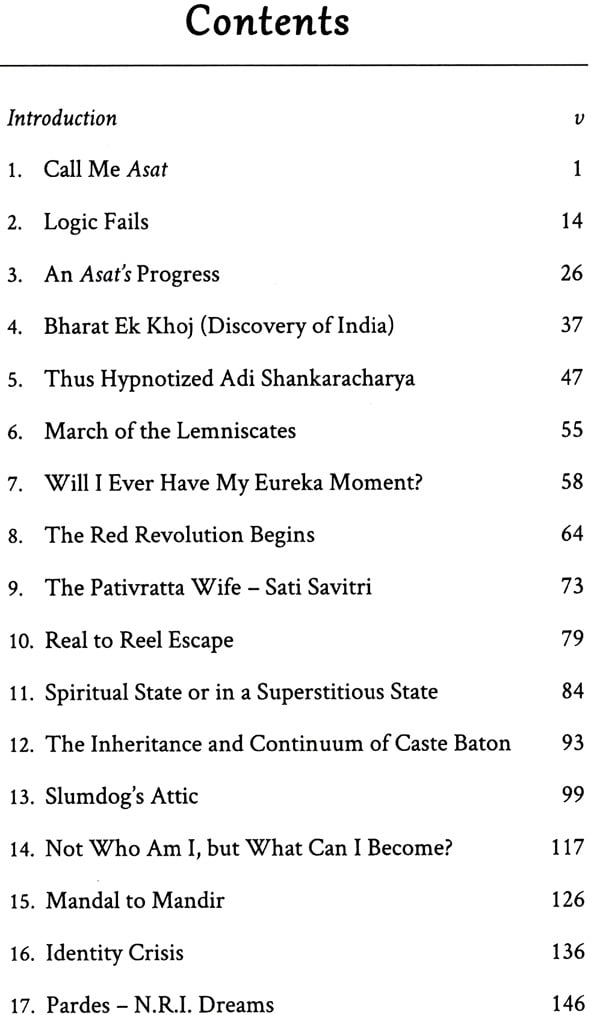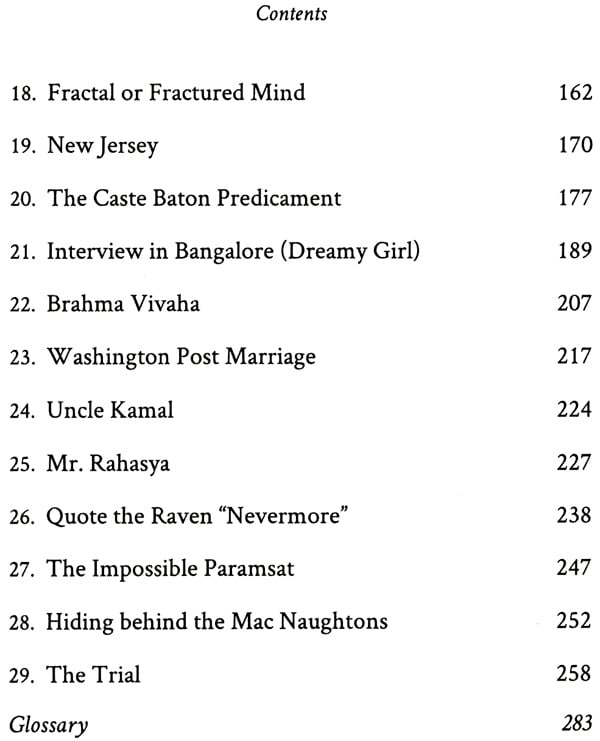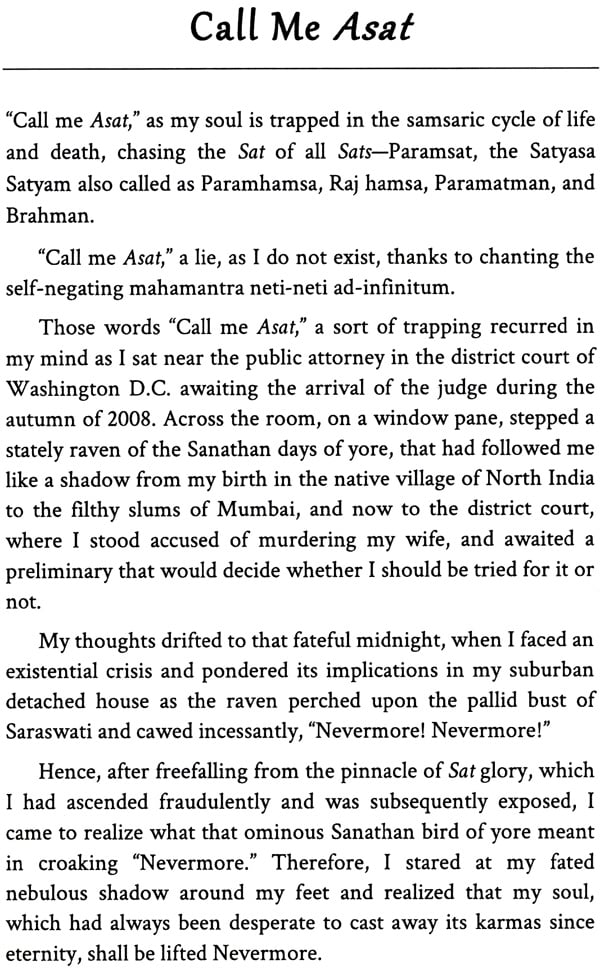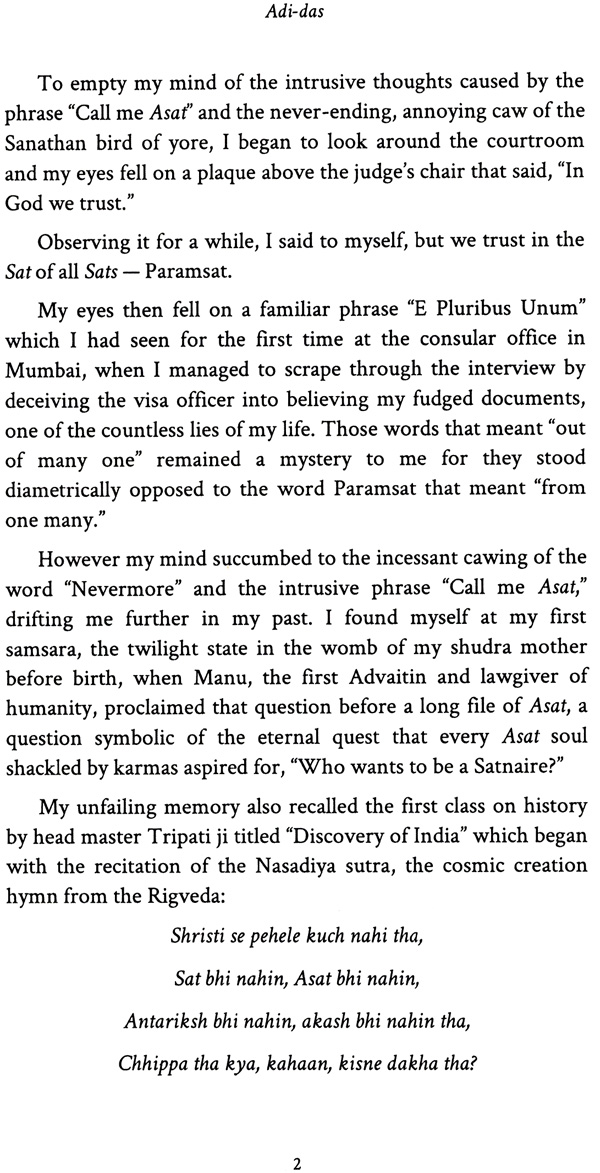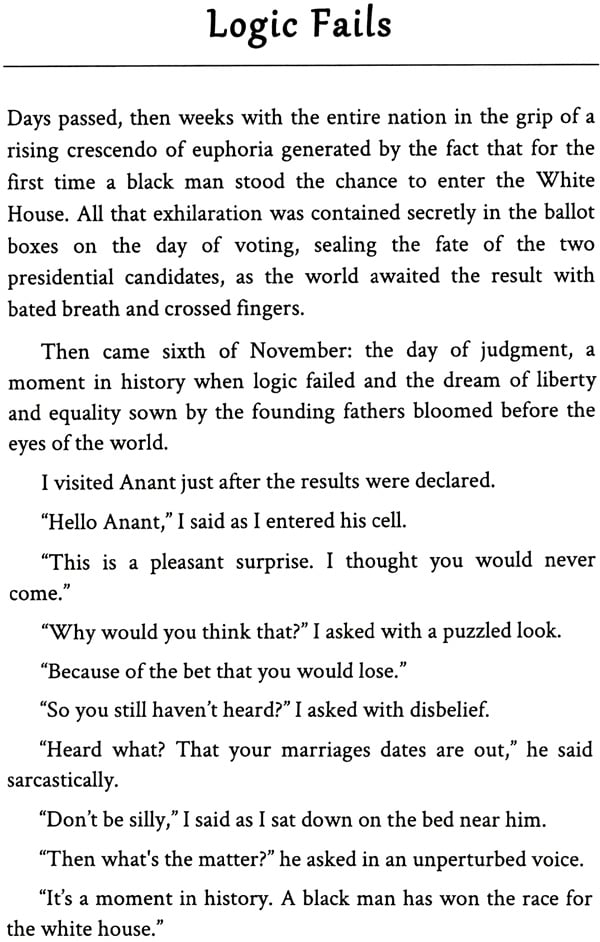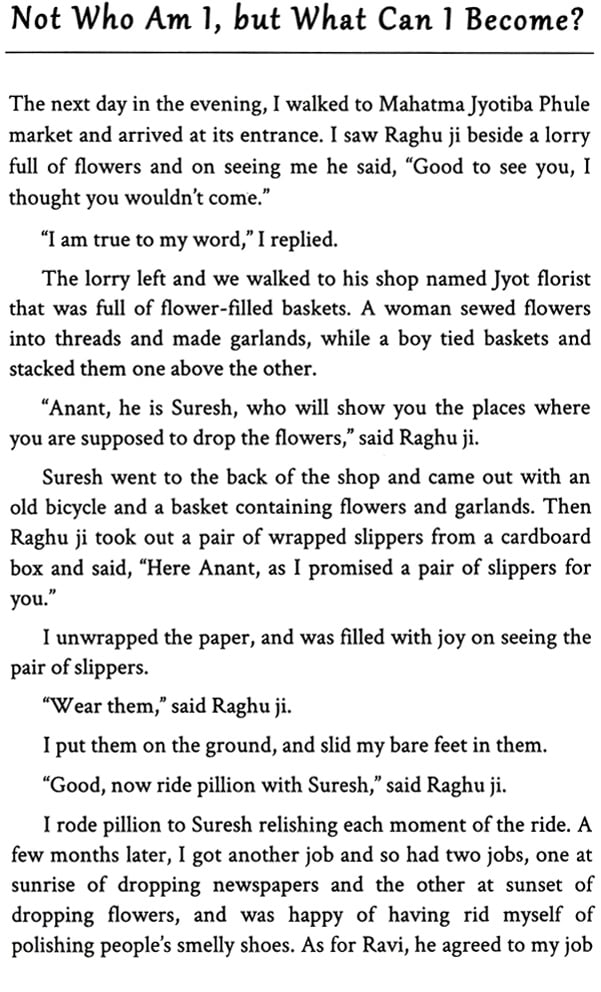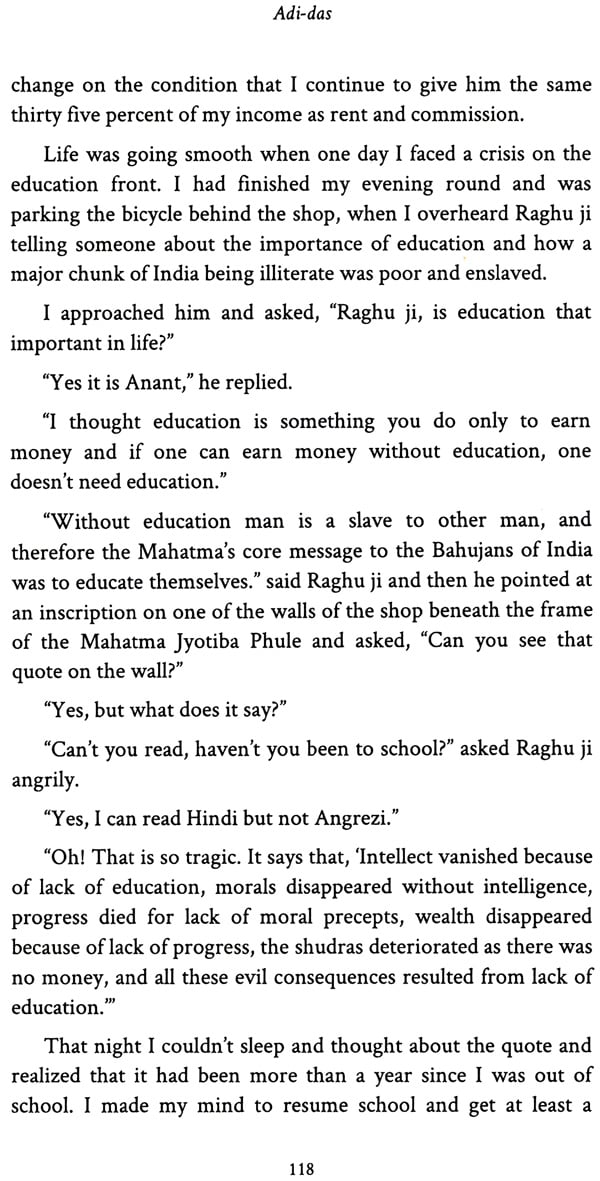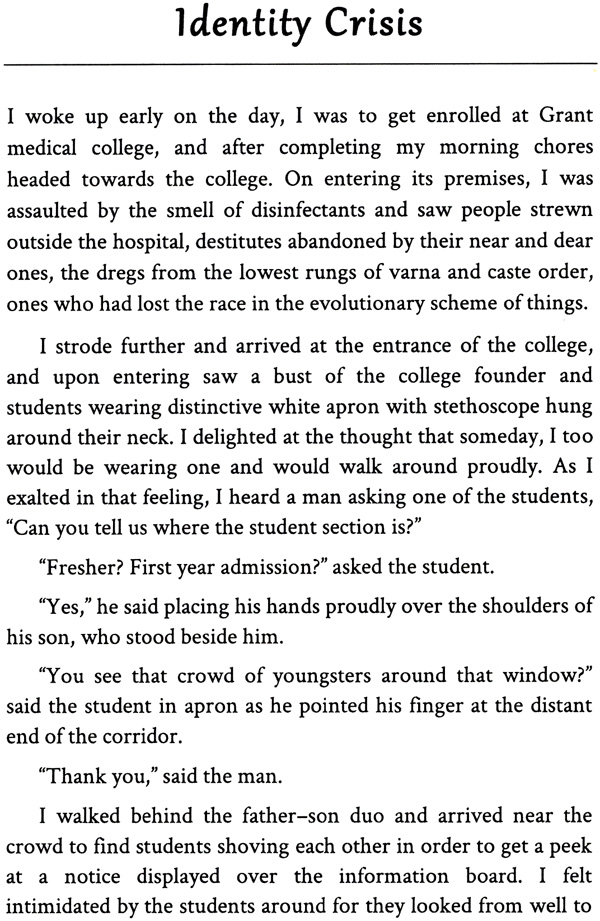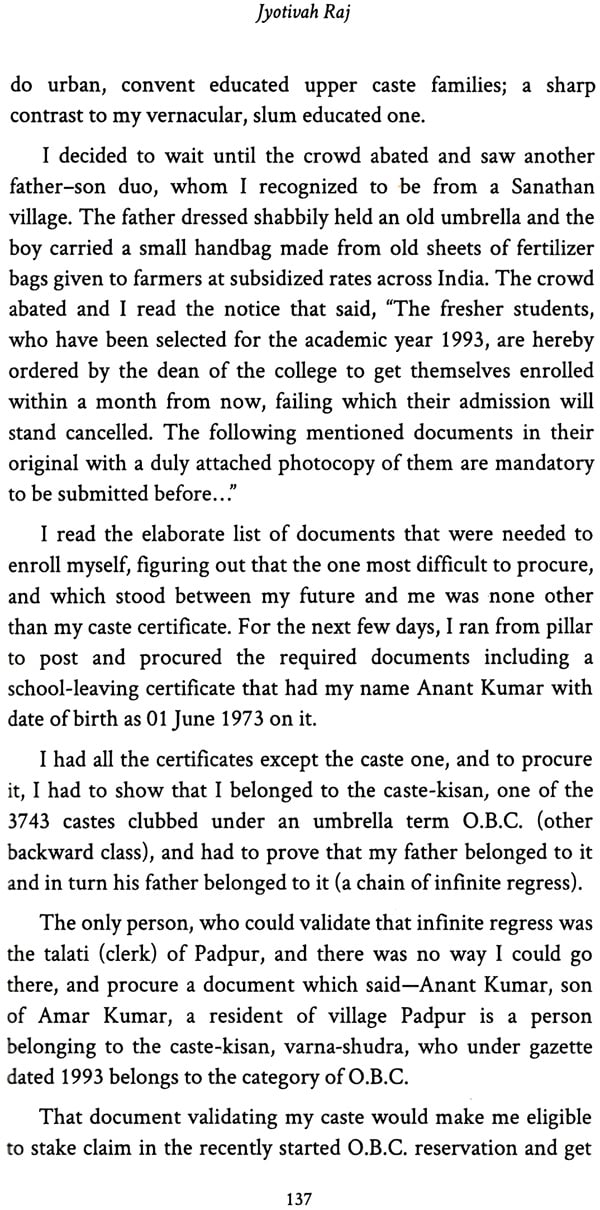
Adi - Das (All day I Dream About Sat of All Sats-Paramsat)
Book Specification
| Item Code: | NAQ926 |
| Author: | Jyotivah Raj |
| Publisher: | Notion Press |
| Language: | English |
| Edition: | 2018 |
| ISBN: | 9781643243894 |
| Pages: | 295 |
| Cover: | PAPERBACK |
| Other Details | 8.00 X 5.00 inch |
| Weight | 280 gm |
Book Description
Adi-das is about caste consciousness realized through the life of an Asat from India who is feet-cuffed and fated since birth. He is nicknamed Adi-das, an acronym for "All Day I Dream about Sat of All Sats" as he is on a quest to seek the singularity of Brahman (infinite cosmic consciousness) that is also called Paramsat, Paramhamsa, and Paramatman. His nickname Adi-das is also a portmanteau of two words: das (slave) and Adi (short for Adi Shankaracharya, the Advaitin).
The story is a thought experiment, where a low caste Shudra man named Anant Conceals his caste and marries an upper caste Brahmin Woman (eventually revealed to her by an anonymous person) breaking the immutable law of the Chaturvarna caste order, a digital code computed through the endogamous Brahma vivaha (marriage).
When his caste fraud stands exposed, he kills his wife and is caught by the cops. He is determined to conceal the reason behind the killing and is ready to face any punishment, resigning to his-fate. However, destiny has other plans when he loses a bet to his former black student on the outcome of the presidential election of 2008 against Barack Obama'S victory. Ironically, in losing the bet, he realizes the truth of America's founding principle that God created all men equal and wants to shout out the lie of inequality of the Chaturvarna -caste order to-the world in a court of law.
Will Anant's (Asat's) revelations in the court help Americans understand. Brahma vivah's absolute bond that is the foundation of the Chaturvarna caste order, and will he have his eureka moment of finding the singtilarity called Paramsat?
Jyotivah Raj is a medical doctor based in Mum6ai: He has deep interests in Cognitive and Neuroscience, and wishes' to pursue them professionally in the coming future. He is curious to • explore caste through the interdisciplinary cognitive approach with a special focus on caste and the spiritual singularity of the infinite cosmic consciousness called Brahman.
Below is a classification and a few terminologies that will give you a better understanding of the novel.
Chaturvarna caste (jati) order
The Manusmriti-based "chaturvarna caste order of Sanathan dharma" divides society into four varnas emanating from the body of god Brahma as follows.
Brahmins: the priestly class from the head of Brahma
Kshatriyas: warriors and rulers from the arms...
Vaishyas: merchants from the thighs...
Shudras: the productive class including farmers from the feet...
The males of the first three varnas are dvijas meaning twice-born and considered shuddh (pure) and are called Sats. The last Varna called shudra, which arises from the feet of Brahma, along with the females of the first three varnas are non-dvijas meaning once-born and considered ashuddh (impure), and are called Asat.
The Sat (1) and the Mat (0) are philosophical-mathematical categories and are analogous to:
• White/black
• 1 (self-existence) /0 (non -existence)
• dvija (twice-born)/non-dvija (once-born)
• Shuddh (pure)/ashuddh (impure)
• Good/evil.
Sanathan: that which has neither a beginning, nor an end, and which is beyond space and time, and so is eternal and circular. In addition, where there is no visible order whatsoever (neither the church nor the state) but only the invisible chaturvarna caste order. A spiritual state in which all souls by constantly chanting the self-negating mahamantra neti-neti (neither this, nor that) infinitely have negated matter.
"Sat" is a Sanskrit adjective meaning the ideal, pure and the true essence (nature) of an entity or existence in Vedanta. It can thus be concluded as the self-existent.
Its negation Asat consequently refers to non-existence, untruth (falsehood), and unreal.
Sat is singular when used in an individual context; in its plural form, it becomes Sats.
For example, one Sat, many Sats.
However, an Asat is same when used in both a singular and plural context. An Mat stands for both singular and plural.
For example, one Asat, many Asat.
Lemniscates = Sat +Asat.
In a Sanathan binary world of Sat and Asat, a Sat is "self-existent" and so mathematically it is 1 and its binary opposite Asat is "non-existent" and so mathematically is 0.
The corollary to the above relation being that for the Sat the Asat doesn't exist, but for the Asat, the Sat is self-existent. So the Asat, that is 0 is eternally aspiring to be a Sat, that is 1, aspiring to be a dvija in his next life by serving the Sat properly in this life to accrue positive karmas.
The Sat is the pati (husband-lord), and the Asat is the patni (wife-serf) and all relationships in the Sanathan world are based on this entanglement of Brahma vivaha.
**Contents and Sample Pages**
